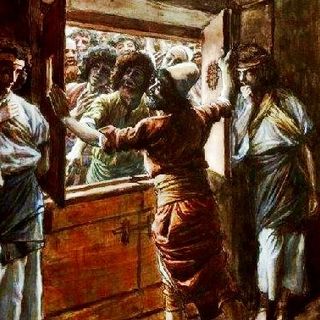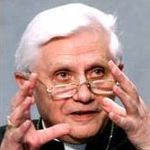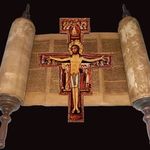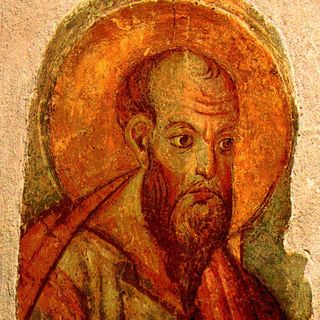


"Denkt nicht, ich sei gekommen, um das Gesetz und die Propheten aufzuheben. Ich bin nicht gekommen, um aufzuheben, sondern um zu erfüllen. Amen, das sage ich euch: Bis Himmel und Erde vergehen, wird auch nicht der kleinste Buchstabe des Gesetzes vergehen, bevor nicht alles geschehen ist." (Mat 5:17-19)
Artikel über die Beziehung zwischen der Thora und dem Evangelium und über die Beziehung zwischen messianischen Juden, jüdischen Christen, hebräischen Katholiken, katholischen Juden und den jüdischen Geboten.
 Treu den Quellen der jüdischen Tradition sind Juden gerufen, den Wahnsinn zu vermeiden, der die Gesellschaft zu verschiedenen Zeiten und in verschiedenen Formen ergreift, wobei sie gleichzeitig eine moralische Gelassenheit und psychologische Ausgeglichenheit behalten sollen, die ausreichen, um die Kombination von Disziplin und Wohltätigkeit auszuüben, die das Kennzeichen des Judentums sind.
Treu den Quellen der jüdischen Tradition sind Juden gerufen, den Wahnsinn zu vermeiden, der die Gesellschaft zu verschiedenen Zeiten und in verschiedenen Formen ergreift, wobei sie gleichzeitig eine moralische Gelassenheit und psychologische Ausgeglichenheit behalten sollen, die ausreichen, um die Kombination von Disziplin und Wohltätigkeit auszuüben, die das Kennzeichen des Judentums sind.
Weiterlesen: Das Judentum und die moderne Haltung zur Homosexualität
 Among the sexual perversions proscribed as criminal offenses in the moral code of the Torah are homosexual relations between males (Lev. 18:22). Talmudic law extends the prohibition also to lesbianism. Rabbinic sources advance various reasons for the strict ban on homosexuality, which is regarded as a universal law included among “the Seven Commandments of the Sons of Noah.”
Among the sexual perversions proscribed as criminal offenses in the moral code of the Torah are homosexual relations between males (Lev. 18:22). Talmudic law extends the prohibition also to lesbianism. Rabbinic sources advance various reasons for the strict ban on homosexuality, which is regarded as a universal law included among “the Seven Commandments of the Sons of Noah.”
 A Temple is a seat of Divine Presence. In Judaism, there are two Temples, one for the dimension of time, the Sabbath, and one for the dimension of space, the Temple in Jerusalem. Christianity adds a third, the Son of G-d incarnate in the nature of man.
A Temple is a seat of Divine Presence. In Judaism, there are two Temples, one for the dimension of time, the Sabbath, and one for the dimension of space, the Temple in Jerusalem. Christianity adds a third, the Son of G-d incarnate in the nature of man.
 It seems to me that a Catholic cannot help but be a crass supersessionist unless he recognizes the value that keeping the Law of Moses can have for the Jew who would serve G-d as He revealed Himself through His Incarnate Son.
It seems to me that a Catholic cannot help but be a crass supersessionist unless he recognizes the value that keeping the Law of Moses can have for the Jew who would serve G-d as He revealed Himself through His Incarnate Son.
 The history of the relationship between Israel and Christendom is drenched with blood and tears. It is a history of mistrust and hostility, but also - thank God - a history marked again and again by attempts at forgiveness, understanding and mutual acceptance... Can Christian faith, left in its inner power and dignity, not only tolerate Judaism but accept it in its historic mission? Or can it not? Can there be true reconciliation without abandoning the faith, or is reconciliation tied to such abandonment?
The history of the relationship between Israel and Christendom is drenched with blood and tears. It is a history of mistrust and hostility, but also - thank God - a history marked again and again by attempts at forgiveness, understanding and mutual acceptance... Can Christian faith, left in its inner power and dignity, not only tolerate Judaism but accept it in its historic mission? Or can it not? Can there be true reconciliation without abandoning the faith, or is reconciliation tied to such abandonment?
 There are no disagreements between Judaism and Catholicism. Where their teachings diverge, it is because they apply to two different, well, let’s call them universes, two ways that human experience is unified (uni-verse, “turned into one”) in relation to G-d according to their respective covenants.
There are no disagreements between Judaism and Catholicism. Where their teachings diverge, it is because they apply to two different, well, let’s call them universes, two ways that human experience is unified (uni-verse, “turned into one”) in relation to G-d according to their respective covenants.
Weiterlesen: Judaism & Catholicism: The Essential Difference
 From Cardinal Jean-Marie Lustiger's Book 'The Promise':"The Church appears in Jerusalem, after Pentecost, as an "assembly" kahal in Hebrew, ecclesia in Greek. it is unthinkable that she would claim to replace Israel. She is not another Israel, but the very, fulfillment, in Israel, of God's plan..."
From Cardinal Jean-Marie Lustiger's Book 'The Promise':"The Church appears in Jerusalem, after Pentecost, as an "assembly" kahal in Hebrew, ecclesia in Greek. it is unthinkable that she would claim to replace Israel. She is not another Israel, but the very, fulfillment, in Israel, of God's plan..."
 The commandments of the Law of Moses require both interior and exterior acts. There are commandments which pertain to the heart (love of G-d, to love of neighbor, fear of G-d etc.) and commandments which pertain to the body (resting on the Sabbath, eating kosher food, etc.). Virtually all the commandments of Jesus relate to interior acts. True, he requires acts of charity. He requires us to feed the hungry, clothe the naked, visit the sick etc. but that is because those acts bear witness to love. It is the love that he requires, and it has been said by Catholic saints that, without love, even such acts are meaningless.
The commandments of the Law of Moses require both interior and exterior acts. There are commandments which pertain to the heart (love of G-d, to love of neighbor, fear of G-d etc.) and commandments which pertain to the body (resting on the Sabbath, eating kosher food, etc.). Virtually all the commandments of Jesus relate to interior acts. True, he requires acts of charity. He requires us to feed the hungry, clothe the naked, visit the sick etc. but that is because those acts bear witness to love. It is the love that he requires, and it has been said by Catholic saints that, without love, even such acts are meaningless.
 The sanctification of the body is important because, as St. Paul points out in Romans 7, the law of sin, i.e., the impulse to sin, resides in the body. The sanctification of the body through the repeated acts of obedience to the ceremonial law is directed to uprooting that impulse to sin.
The sanctification of the body is important because, as St. Paul points out in Romans 7, the law of sin, i.e., the impulse to sin, resides in the body. The sanctification of the body through the repeated acts of obedience to the ceremonial law is directed to uprooting that impulse to sin.
 Is the baptized Jew still a Jew? Is he still obligated to keep the Law? Didn't St. Paul say that he's not? The purpose of this article is to address these questions by examining some of the most relevant passages from the epistles of St. Paul. We will see that a careful reading of his epistles suggests that the very reason St. Paul gives for exempting the Gentile from the observance of the Law deepened the meaning of the Law and value of observance for the Christian Jew.
Is the baptized Jew still a Jew? Is he still obligated to keep the Law? Didn't St. Paul say that he's not? The purpose of this article is to address these questions by examining some of the most relevant passages from the epistles of St. Paul. We will see that a careful reading of his epistles suggests that the very reason St. Paul gives for exempting the Gentile from the observance of the Law deepened the meaning of the Law and value of observance for the Christian Jew.
 Are the laws of kashrut (the Jewish dietary laws) just empty, outdated rules, or do they serve a purpose in glorifying God for the Catholic Jew?
Are the laws of kashrut (the Jewish dietary laws) just empty, outdated rules, or do they serve a purpose in glorifying God for the Catholic Jew?